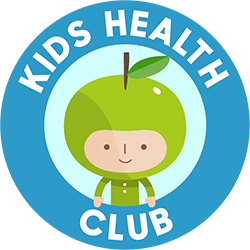Gut bacteria at 3 Years Old

Healthy Kids = Healthy Gut
The gut microbiome a child has by the age of 2-3 years is what their immune system recognises as normal and will return to after disruptions such as antibiotics or diarrhoea. If a child has a healthy gut flora by age 3, they are at a lower risk of developing autoimmune and other chronic illnesses throughout their life. Therefore, establishing a healthy microbiome early in life is crucial and a strong predictor of long-term health, making it essential to promote practices that support its development in children.
Specific lifestyle habits and interventions can either promote the growth of a healthy microbiome or harm it. There are many opportunities from before birth through the early years of life to make positive choices for the microbiome. However, many routine (and often unnecessary) health interventions can be detrimental. This article aims to raise awareness about the impact of common healthcare interventions and lifestyle habits on the microbiome during the first years of life and their long-term health implications.
One key strategy to enhance the microbiome in children begins during pregnancy. Consuming an unprocessed, whole-food, fiber-rich diet and supplementing with probiotics during pregnancy can significantly support the development of a healthy microbiome in the mother, which is transferred to the infant during birth and through close contact. Pregnant women should include probiotic-rich foods in their diets or consider high-quality probiotic supplements, especially in the third trimester.
The mode of delivery plays a significant role in establishing an infant's microbiome. Infants born via vaginal delivery are exposed to their mother's vaginal microbiota, which colonises their gut and boosts their immune system. Babies born vaginally have a microbiome rich in lactobacilli and bifidobacteria. In contrast, the microbiome of infants born via cesarean section resembles the skin flora of hospital staff, which is highly inflammatory. While C-sections can save lives, their rates in developed countries are far higher than necessary. Women need to be fully informed about the consequences of an elective C-section to make a truly informed decision about their birth choice. Microbiota restoration techniques, such as vaginal seeding, can be considered for cesarean-delivered babies.
Breastfeeding Supports Baby's Health
Breastfeeding is another critical factor. Breast milk contains prebiotics, probiotics, and human milk oligosaccharides (HMOs) that promote the establishment of a healthy, anti-inflammatory gut microbiome high in bifidobacteria and lactobacilli and aid in developing the infant's immune system. Exclusive breastfeeding for the first six months of life and continued breastfeeding along with solid foods for two years or beyond is recommended by WHO, UNICEF, the American Academy of Pediatrics, and other health bodies, as it provides the optimal mix of nutrients and beneficial bacteria. Even just one bottle of formula can alter the microbiome to one higher in E. coli and inflammatory clostridia, and it can take up to four weeks of exclusive breastfeeding for the microbiome to recover from that one bottle. The longer a child is breastfed, the lower their risk of developing allergies, one of the most common childhood illnesses.
Diet Supports Kids Health
Diet plays a fundamental role in microbiome development. A fiber-rich diet supports the growth of beneficial gut bacteria. Humans cannot digest fiber, but gut bacteria thrive on it. Each type of plant feeds different gut bacteria, so consuming a variety of plant foods increases microbiome diversity. The more diverse the microbiome, the healthier the person. Diets high in sugar and processed foods can promote the growth of harmful bacteria and yeast, disrupting the microbiome balance. Introducing a variety of fruits, vegetables, whole grains, and legumes in the early years promotes a healthy gut flora.
Instead of introducing sugary cereal as a weaning food, children benefit from "baby-led weaning," where they are offered unprocessed, whole foods they can pick up with their hands and feed themselves once they are developmentally ready (able to sit and interested in food). Another benefit of baby-led weaning is that children can stop eating when they feel full, rather than being spoon-fed when no longer hungry, reducing the risk of obesity.
Healthy Kids Play In Dirt
Playing in dirt and exposure to pets, particularly dogs, can also be beneficial. Interaction with pets has been shown to diversify the microbiome and reduce the risk of allergies and asthma by training the immune system early on. Promoting safe and regular play in nature and interaction between children and pets can significantly enhance microbiome diversity.
On the other hand, certain factors can negatively impact the development of a healthy microbiome and should be avoided. Overuse of antibiotics and reflux medications can disrupt the balance of gut bacteria, leading to dysbiosis. While antibiotics are sometimes necessary, they should be prescribed judiciously. Most ear infections and all viral infections—the most common causes for antibiotic prescriptions in the early years—resolve without antibiotics. In fact, a course of antibiotics increases the risk of developing another bout of otitis media within three months.


